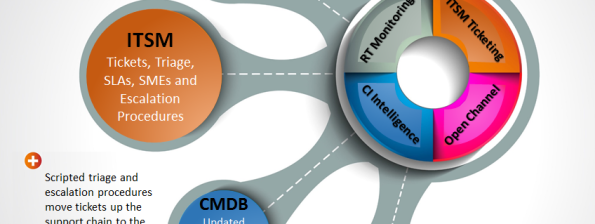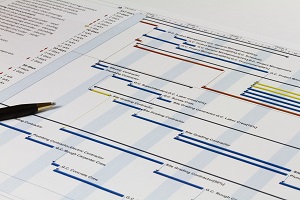Category Archives: Computing
Computing hardware, parallel approaches to software and hardware design, automation
17 Dec Visualizing Knowledge

Visualizing Knowledge – Automatic Generation Words are so symbolic that even symbolic thinkers, like me, understand more when there’s a picture to go along with the words. is partly explains my crazy use of images in this blog. The various forms of graphical representations are superb inventions that enable us to view and understand mathematical data […]
10 Dec Measuring Knowledge

Sometimes you need to know about your knowledge. When you’re in the middle of trying to build a system that knows stuff, you may ask, how much does the system know after this training or learning cycle as a percent of the total knowable amount? When we test students in their learning cycles, we use a […]
03 Dec Co-Responsibility in Hybrid IT

Operational Continuity takes a Village Today’s post departs from my current stream of topics because I am thinking about this subject often lately. I apologize for the ambiguous title, but I think it encapsulates what I want to talk about. “Hybrid IT” is a way of describing the technology supporting an organization in which the […]
26 Nov Planning and Scheming

Select a Knowledge Representation (KR) Scheme In prior posts I have been describing the steps of building knowledge systems. A major part of Step 3: Task 1 is defining how to store knowledge – selecting a scheme. Giarratano and Riley (1989) suggest making the selection of a scheme, such as rules, frames or logic, dependent upon […]
20 Nov Identifying and Acquiring Knowledge

One of the simplest knowledge systems is a photograph. It consists of a systematically arranged collection of pixels and its design is based almost completely on framing and focusing. Specifying knowledge software involves framing the knowledge domain and focusing on the aspects that are meaningful to users, and the constraints that affect meaning. By so saying, […]
17 Nov Environmental Awareness for AI Geeks

Selecting an Environment and Tools I plan to take a few posts in this section to focus on expert systems (Giarratano 1989), exploring the development process in greater detail. While some projects require no development, some require you to select a platform or development environment or both. There are specially designed development platforms, tools and environments that provide much of the […]
15 Nov Planning a Knowledge Project

Deliverables and the Business Case If you are a developer, a project manager, or a project sponsor of an expert system (Weiss 1984) or knowledge-based engineering project, it is very important to know early what the deliverables will be for everyone involved. Even in agile projects, where detailed requirements evolve through the course of development, […]
27 Oct The Nature of Innovative Thinking

Mental Exploration The shape of the world changed radically when folks from the eastern and western hemispheres became aware of one another and of their respective geographies. The Age of Exploration (AKA the Age of Discovery) was amazing – or should I say “it is amazing”? While the focus has changed from continents and cultures, to galaxies […]
21 Oct Fuzzy Interconnectedness

Fuzzy and Interconnected Techniques Section 5 suggests that the software of cognition is very fuzzy and able to operate efficiently even without having complete or totally accurate information. We said that we want to replicate that flexibility. We spoke in Section 7 about different fuzzy approaches for representing and processing information. These approaches include artificial […]
18 Oct Coefficient of Bureaucratic Drag

Moving into a Knowledge Economy It has been suggested that in the current era, all major companies are “knowledge” companies. Whether or not this is true for all companies, many corporate leaders and workers understand that knowledge is power. Today, the best thing most companies can do with technologies is to empower knowledge workers with more information, and […]




